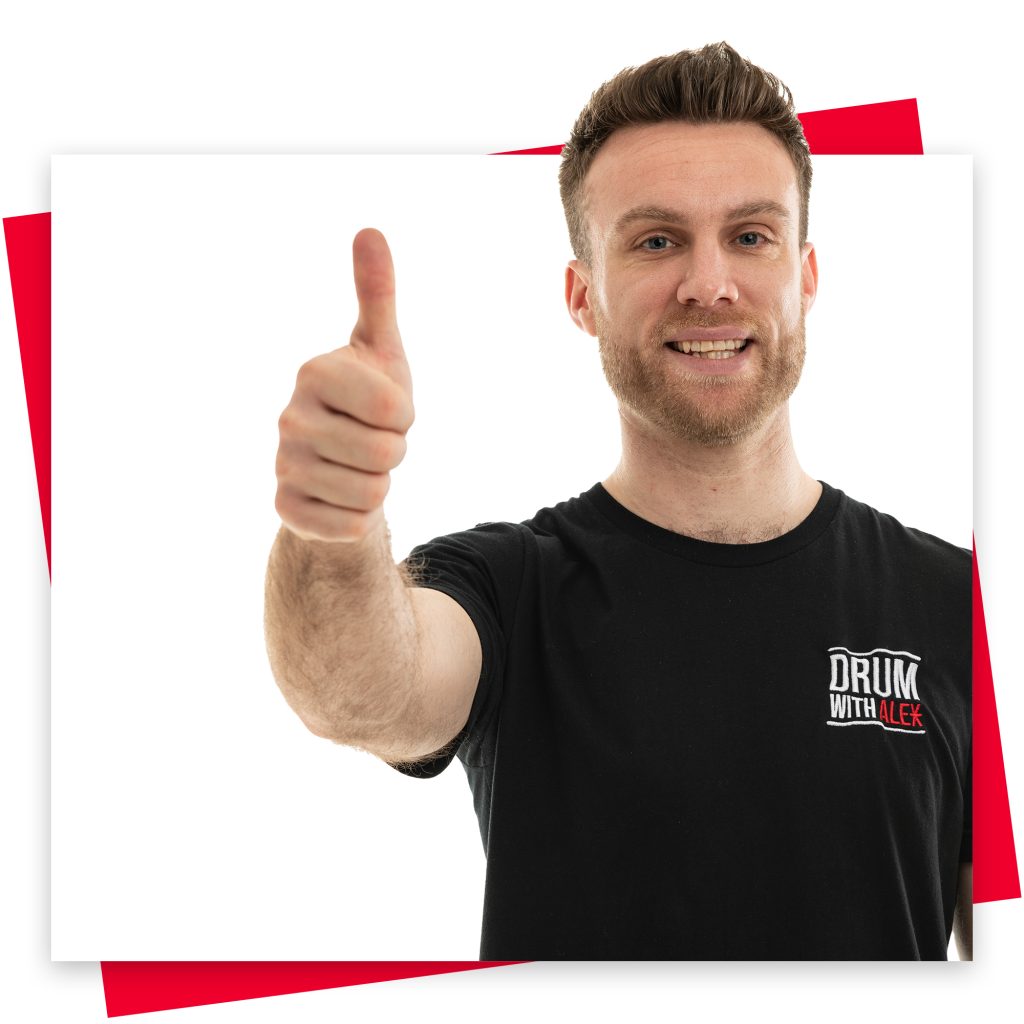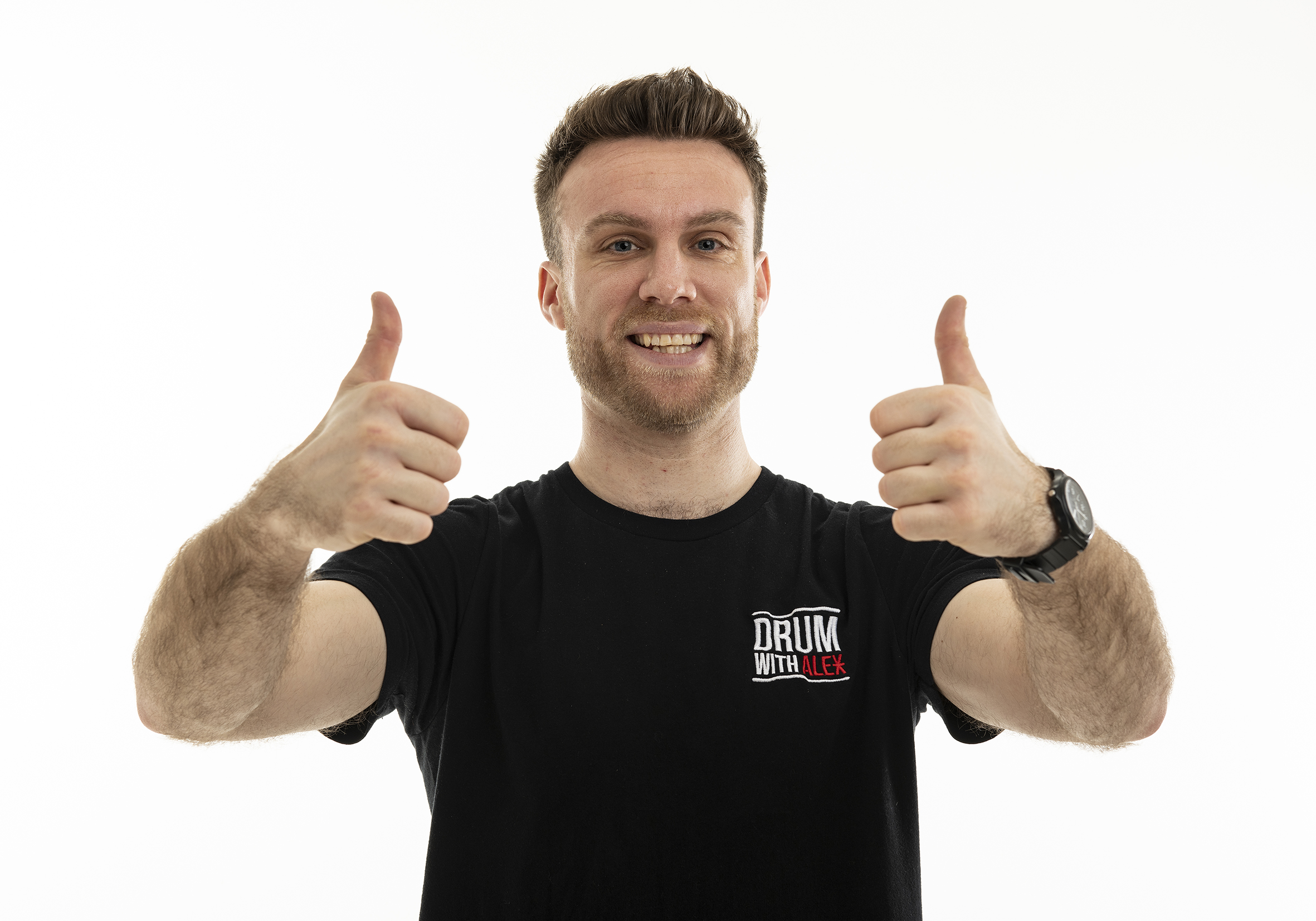Absolutely! While having a drum kit at home is beneficial for practicing, it’s not essential. There are various ways you can practice drumming without a kit. You can use practice pads, pillows, or even just your hands and feet to work on rhythm and coordination. Additionally, you can practice rudiments, stick control exercises, and timing drills without needing a full drum set. Our instructors can provide guidance on effective practice routines that don’t require a drum kit. So, even if you don’t have access to a drum kit, you can still make progress and improve your drumming skills.
We welcome students as young as 5 years old (Year 1). At this age, our lessons are designed to be fun and inspiring, incorporating plenty of musical games to engage young learners.
In an ideal scenario, we recommend starting at around 7 years old (Year 3). At this age, students typically have the ability to maintain longer periods of concentration, allowing for more focused and productive lessons. However, we understand that each child is unique, and we tailor our approach to suit the individual needs and abilities of every student, regardless of age.
Absolutely not! It’s never too late to start learning the drums. Drumming is a skill that can be enjoyed at any age and offers numerous benefits, including stress relief, cognitive stimulation, and physical coordination. Whether you’re a teenager, adult, or senior, our lessons are tailored to accommodate learners of all ages and skill levels. Our experienced instructors will work with you at your own pace, ensuring a rewarding and enjoyable learning experience regardless of age. So, don’t let age hold you back from pursuing your passion for drumming!
Sizes 7a or 5a are fine.
Both are available!
Individual (Schools) – 20 mins.
Individual (Private Tuition) – 30 mins or 60 mins.
Group lessons (Schools) – 30 mins.
To ensure smooth payment processing, we kindly request that payments for your child’s lessons be made via monthly direct debit.
Our pricing structure is as follows:
30-minute group lessons at school: £33 per month
20-minute individual lessons at school: £49 per month
30-minute individual private lessons: £66 per month
Additionally, we offer a sibling discount of 20%.
Please note that payments are billed in equal amounts over 12 months, including school holidays. This means that payments are still taken during months when lessons are not held, such as August.
If your child is starting lessons midway through a month, the remaining weeks will be calculated accordingly for your first month’s payment.
We appreciate your understanding and cooperation in this matter. If you have any questions or concerns regarding payments, please don’t hesitate to reach out to us.
Your child will receive a total of 33 lessons throughout the academic year. Please note that there are no lessons conducted during school holidays.
We adhere to the 39-week school calendar and incorporate a 6-week lesson buffer to accommodate any unforeseen circumstances where lessons cannot be conducted, such as bank holidays, inset days, or SAT examination weeks.
Unless the teacher is absent, all missed lessons will be charged for. Lessons will not be refunded or rearranged in the case of short-term illness, school trips or planned/unplanned absence (including non-emergency closures with less that 48 hours’ notice).
In the event that one of our teachers is unable to conduct a lesson, we will arrange for a suitable cover teacher to step in. The cover teacher will be briefed on the current material to ensure a seamless continuation of the lesson.
If, due to time constraints, we are unable to secure a cover teacher, a free lesson will be credited to your account, and a replacement lesson will be arranged at your convenience. Please note that cash refunds are not provided in such situations.
To discontinue lessons, a full term’s notice must be sent via email to Alex at support@drumwithalex.com. This notice must be received within the first two weeks of the term’s commencement, and lessons will conclude at the end of that term.
Upon receiving your final notice, we will schedule your final payment before canceling the direct debit mandate. As payments are taken in equal monthly amounts throughout the year, there may be unused lessons remaining, which you can utilise before terminating your enrollment. We will settle your account via direct debit and subsequently close the mandate.
Yes, lessons taught at your child’s school are conducted throughout the school day. Children may miss some of their regular lessons, but teachers are informed and aware of their absence.
Lessons are arranged at varying times each half term to prevent any recurring clashes. Upon request, some lessons can be scheduled before school or during break times. Timetables for each term are emailed to parents at the beginning of term for your convenience.
Not to begin with. Our founder didn’t have a kit for his first 2 years of learning, until his parents gave in! We recommend buying a kit after about 3 months of lessons.
The Rockschool Method book is awesome for complete beginners. It costs around £18 and is available online.
Honestly, yes. While you can still practise drums without a kit, nothing beats learning with your very own instrument. You might want to wait until you know drummings for you, but once you do – a kit’s a great investment. A new beginner acoustic drum kit costs around £199. Buying brand new or second hand are both fine.
Electronic kits are awesome. Their small and compact structure lets you practise in smaller spaces. Those reduced noise levels lets you tap those pads to your heart’s content and stay on your neighbour’s good sides! The built in metronome and kit sounds features help you hone your skill, explore different sounds and get the most out of this wonderful instrument.
Roland, Yamaha or Alesis are brilliant for electronic kits. For an acoustic kit, you can’t go wrong with Pearl, Natal, Mapex, Tama, or Yamaha. Our favourite online shop is Gear4Music – they stock a wide range of equipment that considers drummers of all abilities. And the prices are even better!
If you’re looking for a drum shop specialist, Graham Russell Drums in Hampshire is the best place to go. It happens to be the UK’s biggest drum store. And drummer’s heaven. Seriously – it’s that good. Whether you’re a seasoned drummer or just starting out, their lovely staff are itching to share their guidance and advice.
Before buying a second-hand kit, always make sure to check out its overall condition. Before you part with your cash, ask yourself: is there anything missing? Does it come with all the foot pedals? Does it include a stool? If you can, ask for advice from someone you know who has drum knowledge. Gumtree, eBay and Facebook Marketplace are great places to pick up decent second-hand kits.
The frequency of practice depends on your goals and schedule. However, practicing a little bit every day is often more beneficial than longer sessions less frequently. Aim for consistency rather than quantity.
What should I practice?
Practice should include a mix of technical exercises, repertoire pieces, and improvisation. Your teacher will provide guidance on specific exercises and pieces tailored to your skill level and goals.
When should I practice?
Choose a time of day when you feel alert and focused. It could be in the morning before starting your day, during a break in the afternoon, or in the evening after dinner. Consistency is key, so try to practice at the same time each day if possible.
How should I practice?
Practice should be structured and focused. Break down difficult passages into smaller sections and practice them slowly and accurately before gradually increasing the tempo. Use a metronome to help maintain steady timing. Don’t forget to incorporate sight-reading, ear training, and improvisation into your practice routine.
Where should I practice?
Choose a quiet and comfortable space where you can focus without distractions. It could be a dedicated music room, a corner of your bedroom, or even a quiet outdoor area. Ensure you have all necessary equipment and materials readily available.
Why should I practise?
Practice is essential for skill development and improvement. It helps reinforce muscle memory, refine technique, and build confidence. Regular practice also allows you to track your progress over time and reach your musical goals more effectively. Ultimately, practicing regularly enhances your enjoyment and fulfillment in playing music.
While I don’t offer regular home visit lessons, please feel free to reach out with your specific inquiry. I’m happy to assist with tasks such as setting up new equipment or tuning a drum kit, among others. Simply get in touch, and I’ll do my best to accommodate your needs.

Have I got you covered?
If not… No question is a silly one!
Pop me a message on support@drumwithalex.com.

